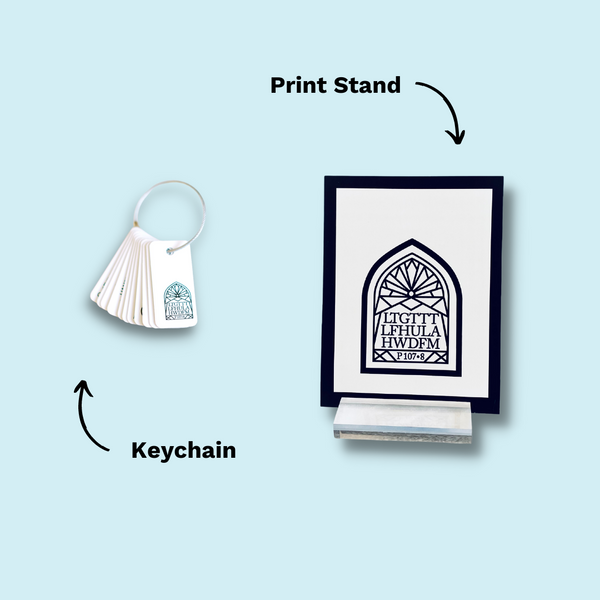"A good man brings good things out of the good stored up in his heart." — Luke 6:45a
I’m so easily persuaded that I’m good.
That I do good things. That I’m nice. That I’m a pretty decent human, as far as humans go. I go to church. I open doors for strangers. I say “please” and “thank you.” I’m actually a courteous driver (something I’ve really worked on). For real. I’ve got a pretty cleaned up life, right?
Wrong.
I might convince myself that I’m good, but reality always comes along and smacks me upside the head. I can think of one particularly embarrassing recent occurrence. One of my kids pointed out that I don’t practice what I preach…in a big group setting. Yup. There I was—on display and accused (rightly). My face got hot. My pits got sweaty. I tried to laugh it off. But man. I was so embarrassed. Afterwards, I tried my best to “practice what I preach” by not losing my temper as I calmly explained why public shaming is hurtful. It was easy for me to feel wronged, and I could’ve just stopped there. But eventually the truth of what my kid said sunk in. They were right. So often, I don’t practice what I preach. I fail. Regularly and specifically. That comment was the backhand of reality, reminding me of what’s true: I’m a sinner in need of saving. All. The. Time.
In order to see myself truly, I need to look at myself honestly.
Our verse this month is a challenge to do just that. It says, “A good man brings good things out of the good stored up in his heart” (Luke 6:45a). It’s forcing us to take inventory and ask ourselves these questions: “What’s coming out of me? Is it good or bad? And what does it say about what’s going on inside of me? Am I making wise choices about the things I’m storing up in my heart?” These are the questions we’re talking about on The Dwell Differently Podcast all month. Get ready for some real-life, gritty conversations! And this is the question Jesus is asking us too:
Will you be honest with yourself about yourself?
Our verse comes at the end of a sermon Jesus gives. He ends by calling people (his original listeners and us) not just to hear his words but to really live them out. He uses a series of jolting images to wake us up from the self-deception of our own perceived goodness. Jesus talks about people falling into pits, having boards stuck in their eyes, thorns and thistles growing on fruit trees, and houses crashing down. We’re going to do a brief flyover of these stories in the hopes that we’ll get the point (for a more in-depth look, listen to this month’s teaching podcast).
Jesus starts out by pointing out our ironic tendency to judge others without rightly judging ourselves first. He illustrates his point with two ridiculous images. The first image is of a blind person trying to lead another blind person. He asks, “Will they not both fall into a pit?” (Luke 6:39b). The second image is of a person with a board in their eye trying to remove a speck from another person’s eye. Can you imagine? Do you see the absurdity, the delusion? And yet, so often, this is what we look like. We think we see clearly to lead others, when we’re really blind. We overlook our own sin, and yet jump to judge it in others. To this Jesus says, “You hypocrite, first take the plank out of your own eye!” (Luke 6:42b, emphasis mine). We should be people who deal first and foremost with our own sin before confronting others.
Next, Jesus gives us another preposterous image to help us diagnose what’s really going on in our hearts. He says we’re like people who expect to get grapes or figs from thornbushes or briers (Luke 6:44). How foolish! And yet, this is what we do in our real lives. We expect to get good things from bad sources. Jesus says, “A good man brings good things out of the good stored up in his heart, and an evil man brings evil things out of the evil stored up in his heart. For the mouth speaks what the heart is full of” (Luke 6:45). Jesus says we simply need to examine the fruit (or thorns!) of our lives to see what’s really going on in our hearts (Hint: We may not like what we discover about ourselves). Jesus also gives us this solution for the sin we find in our hearts: stop storing up evil things and instead make stockpiles of good and godly things.
Finally, Jesus gives a stark warning with a fearsome image: a house crashing down. He starts off with this question, “Why do you call me, ‘Lord, Lord,’ and do not do what I say?” (Luke 6:46). Yikes! Jesus is calling out our pretend-Christian lifestyles, and asking us to actually live out his words! He goes on to illustrate his point. He says to live out his words is to build our house on a solid foundation that can weather the storms that come. But when we hear his words and refuse to put them into practice, we’re building our house on no foundation at all. When the storm comes, our house will collapse and the destruction will be absolute.
And that’s it.
That’s how Jesus ends his sermon—with that final, somber image hanging heavy in the air. I wonder if people walked home in a self-reflective stupor. For us too, these strange, even jarring, images are meant to wake us up to our own self-deception. We’re left asking ourselves if we’re focusing on other people’s mistakes instead of our own, minimizing and justifying our wrong actions, serving Jesus only with our lips. Are you jarred yet? I am. I know the solid foundation I should be building my life on…why do I so often choose the shifting sand!? We can only pray for help.
Jesus, please forgive us! Thank you for warning us. Give us sight. Help us remove these boards from our eyes and renounce the evil things we store up in our hearts. You are the good we need to store up! You are our clear vision, our firm foundation! Thank you for seeing us out in the desert, building our lives on sand, and calling us back to yourself. Would you mercifully put our feet back on solid ground? Amen.




